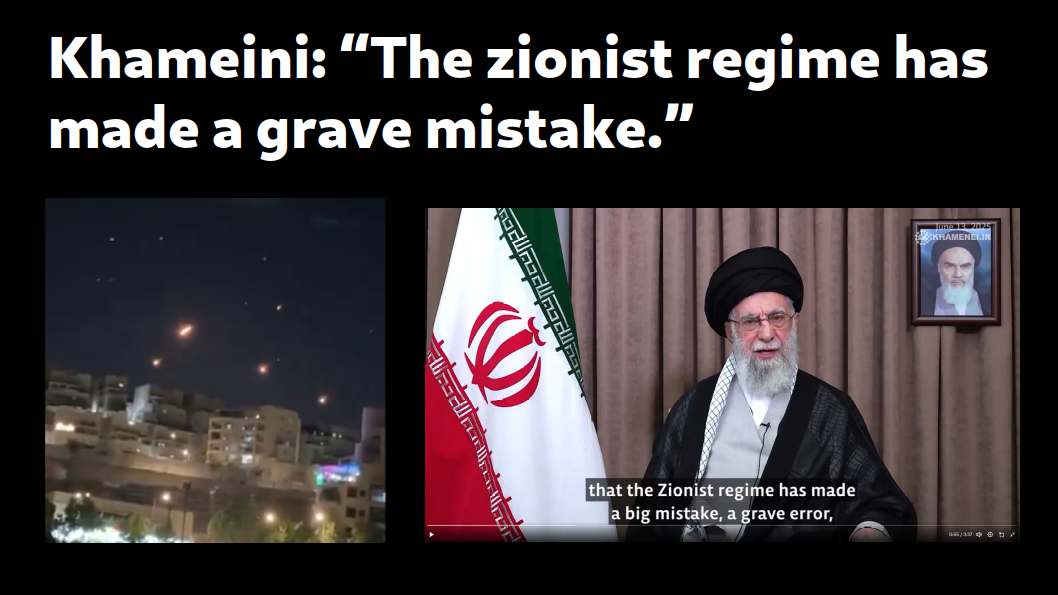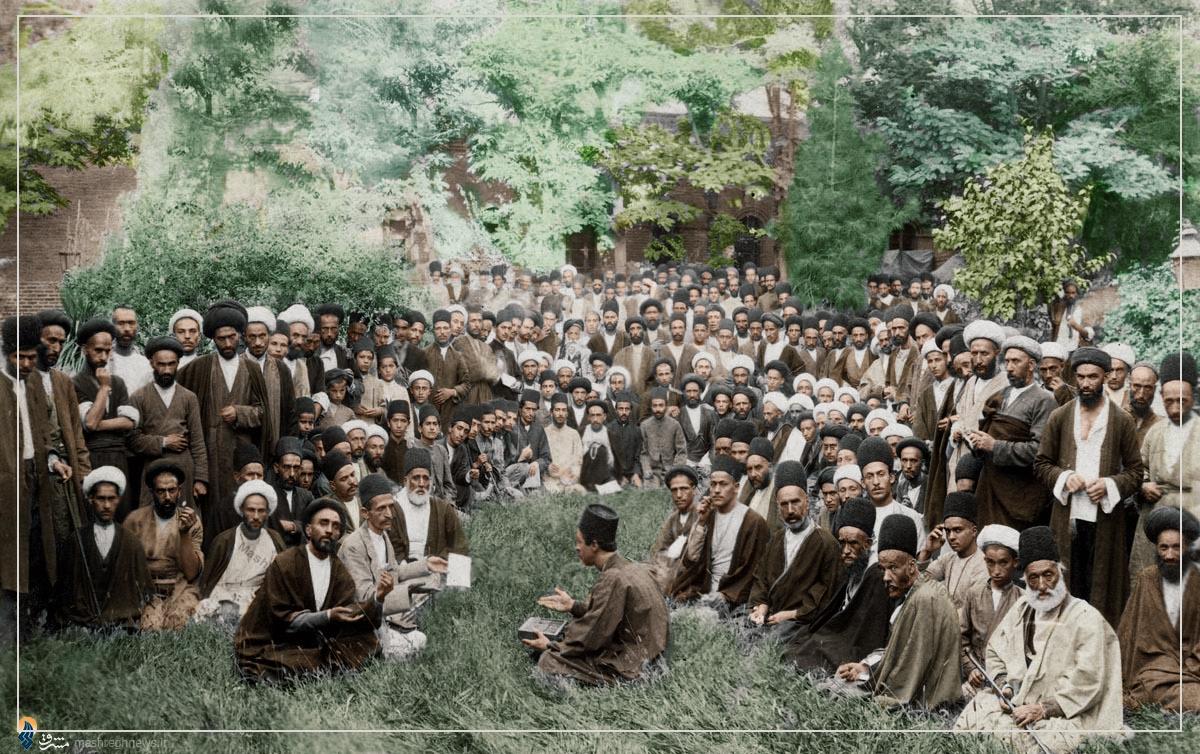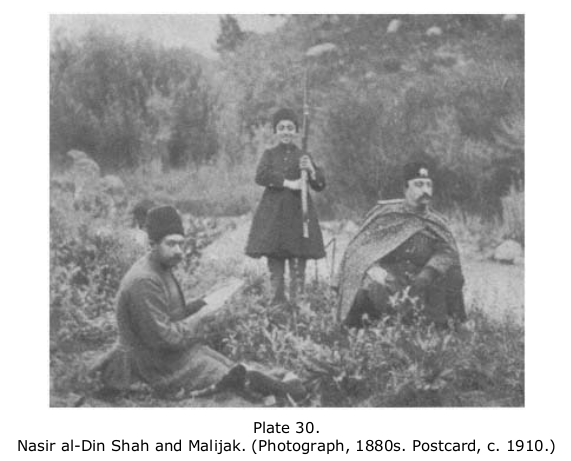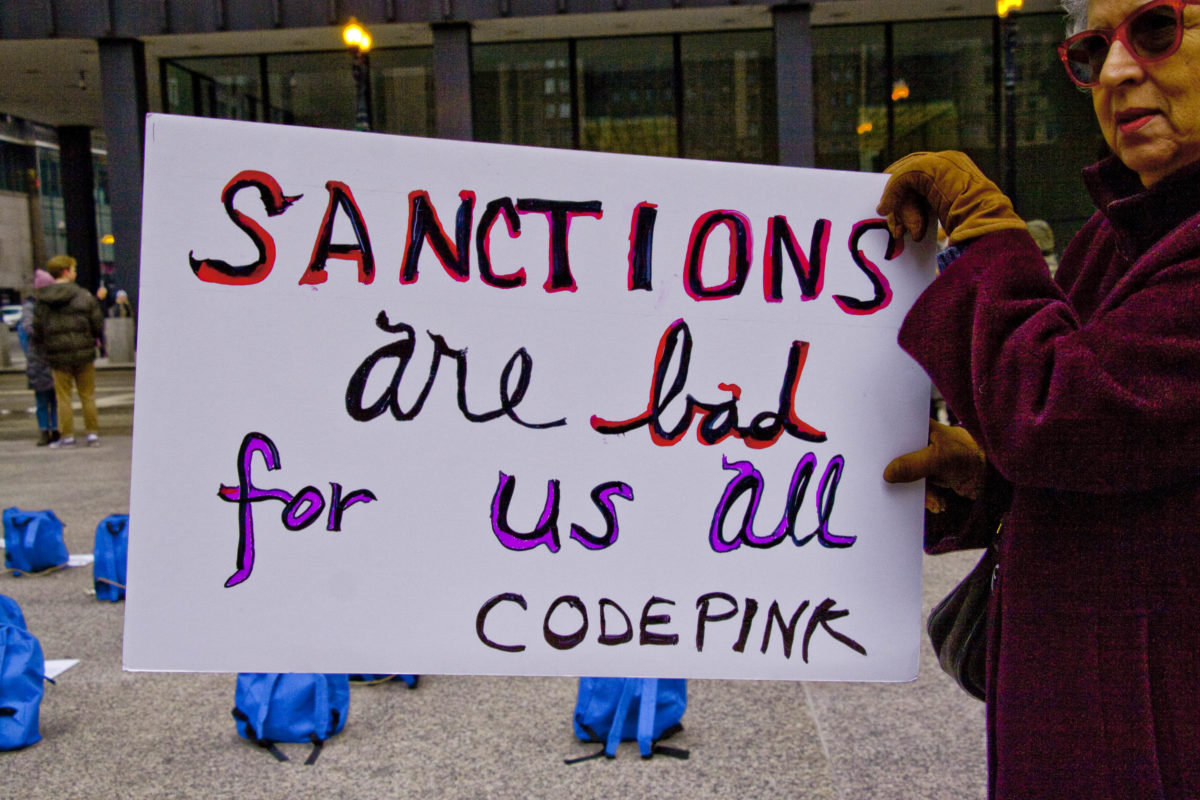Initial reactions to the new war (audio of the regular youtube sit rep).
Tag: Iran
WWCiv 16: Persia and Portugal get constitutions, 1909 and 1910
Timeline of the constitutional revolutions that took place in Persia from 1905-1909 and Portugal in 1910. They weren’t social revolutions but shared important patterns for later events including a long nonviolent sit-in in Persia and a missed communication in Portugal (leading to a suicide!)
Civilizations 35: Islam and Imperialism pt2 – Persia’s wars with Russia
Part 2 of our series on Islam and Imperialism in the 19th century: the Persian Empire’s struggles with the imperialists. In this period Persia was dominated by the Qajjars. We talk about their rise, the multiple wars with Russia, the attempts to modernize, the unequal treaties. We tell the story of Griboyedev’s demise from both sides, and talk about one of the biggest Victorian famines you never heard about – the Persian famine of 1869-1872.
Dealing With Your Pro War Iranian Friends
Because the world didn’t end last week, I’ve recorded another video. After a quick roundup of what happened since the US assassination of Iranian general Qasem Soleimani, I spend some time talking about how to deal with pro-war diasporas who say things like: “I’m Iranian and I support this war, and so should you.”
Video on the Soleimani assassination and preventing World War 3
A 20-minute video about the assassination of Iranian general Qasem Soleimani in Iraq by the US, the context, and the need for an antiwar movement.
Sanctions Are Genocidal, and They Are the US’s Favorite Weapon
Far from precision-guided munitions, sanctions are weapons of starvation, which target the most vulnerable civilians for slow and painful death by deprivation of food and medicine
After withdrawing from the nuclear deal with Iran last year and resuming sanctions last November, the White House in April announced that its goal was to “drive Iranian exports to zero.” To make this drive happen, the White House stopped allowing (my emphasis) countries like India, China, Japan, Turkey, and South Korea to import Iranian oil: dictating to sovereign countries whom they can trade with.
The dictating doesn’t stop there. Last December the United States had Canadian authorities detain and imprison a Chinese executive, the chief financial officer of telecom company Huawei. Meng Wanzhou is currently on trial in Canada, on the allegation that her company violated U.S. sanctions against Iran. Not content with having told China that it cannot trade with Iran, the United States has gotten a third country, Canada, to take a Chinese corporate executive captive in what Trump suggested was leverage for a trade deal: “If I think it’s good for what will be certainly the largest trade deal ever made, which is a very important thing—what’s good for national security—I would certainly intervene, if I thought it was necessary,” he told Reuters in December.
The trade deal with China didn’t come through, and a “trade war” has begun. Meng Wanzhou is still stuck in Canada. And the blockade against Iran is still tightening. Economist Mark Weisbrot assessed some of the damage to the Iranian economy in a recent segment on the Real News Network, noting that when sanctions were imposed in 2012, oil production dropped by 832,000 barrels per day and GDP by 7.7 percent; when they were lifted in 2016 in the nuclear deal, production increased by 972,000 barrels per day and GDP increased by 12 percent that year. In 2018 when sanctions were imposed, oil production fell dramatically again and inflation rose by 51 percent; shortages of dozens of essential medicines, according to a study at the University of California, have followed.
Some basic economics are in order here. A country that does not need to import or export is called an autarky, and in today’s global economy there are no autarkies. All national economies depend on trade: they export, earn foreign currency, and use that to import what they cannot produce. Driving a country’s exports to zero means destroying the country’s economy, and depriving the country’s people of necessities.
Sometimes billed as an alternative to war, sanctions are in fact a weapon of war. Far from precision-guided munitions, sanctions are weapons of starvation, which target the most vulnerable civilians for slow and painful death by deprivation of food and medicine. They are an alternative to war in the sense that unlike the invasion of ground troops or even the dropping of bombs, they pose little risk to the aggressor. This is their appeal to someone like Trump, who revealed the genocidal intent behind the Iran sanctions when he threatened (on Twitter) “the official end of Iran.”
In the 1990s, one focus of the antiwar movement was the impact of the genocidal sanctions against Iraq, which killed 500,000 children (a “price” that Madeleine Albright famously said was “worth it”). Antiwar activists feared that the sanctions were part of a military strategy that would end in even more devastating shooting war. Those fears proved true. Today’s sanctions seem to draw from the same playbook.
International law recognizes that sanctions are a form of warfare, and places the use of the sanctions weapon in the hands of the United Nations Security Council. And so it happened that between the 1990 and 2003 U.S. wars on Iraq, the UN played the shameful role of administering the Iraq sanctions. But today’s unilateral sanctions imposed by the U.S. circumvent any UN legalities. In the same Real News segment, UN Special Rapporteur on Unilateral Coercive Measures Idriss Jazairy noted that about one-quarter of the world’s population is under some form of unilateral sanctions. Iran, Venezuela, Syria, Cuba, Sudan and others are under various U.S. sanctions regimes. Yemen is fully blockaded by the U.S., UK, and Saudi Arabia; Gaza and the West Bank are completely sealed in by Israel; Qatar is blockaded by Saudi Arabia and the UAE, and the list goes on.
U.S. sanctions against Venezuela have already killed 40,000 people between 2017 and 2018, according to a report by Mark Weisbrot and Columbia University’s Jeffrey Sachs. The more intense sanctions imposed in 2019 will kill still more. Venezuela’s electrical grid is damaged, most likely because of sabotage. Maintenance of potable water pumps has become impossible without imported spare parts, leaving millions without water. A Venezuelan professor of economics, Pasqualina Curcio, told a delegation of the End Venezuela Sanctions coalition that sanctions have cost the country $114 billion, “which is nearly equal to one year’s worth of Venezuelan GDP at a typical oil price, or 26 years’ worth of medical imports.”
One of the tactical arguments anti-sanctions campaigners sometimes make is that sanctions “don’t work.” And for their declared purpose of “regime change,” indeed they do not. But when a policy is so widespread, such a first resort, perhaps the declared purpose is not the real purpose. If the purpose is to destroy economies, isolate countries, coerce allies, keep tensions near boiling and maintain a constant threat of war, sanctions are successful. It has been shown time and again that torture “doesn’t work” for obtaining information. But torture is not a technique for obtaining information. It is a technique for breaking a person and, when practiced on a mass scale by an apartheid state or dictatorship, for breaking a society. Sanctions are similar: the point is to break the society, not “regime change.”
Sanctions are Trump’s favorite weapon, but good Democrats are no different. Obama oversaw the destruction of Syria, Clinton laughed about the murder of Gaddafi and the destruction of Libya, and Albright said that 500,000 Iraqi children’s deaths were “worth it.” For the empire, genocide, like aggression, is a normal part of politics. Nuclear planners plan how to commit it. Sanctions officials administer it. And for the most part, human rights organizations take no position on it.
It is possible that at some point sanctions could become self-limiting. If enough countries are sanctioned, they might of course decide to trade with one another. In attempting to isolate so many big countries, the United States could isolate itself, creating a kind of “coalition of the sanctioned.” But from the U.S. perspective, with Brazil, India, and Egypt (the biggest countries in Latin America, South Asia, and the Arab world) all utterly subservient, perhaps this looks like a good moment to try to pressure China, Russia, Iran, Venezuela and Cuba. Trump’s planners can rest assured that it is not them, but millions of innocents in those countries who will pay for their power plays.
This article was produced by Globetrotter, a project of the Independent Media Institute.
Free Homa Hoodfar
UPDATE SEPTEMBER 26/16: Homa Hoodfar was released from prison.
At the end of August, Iran’s Foreign Minister Mohammad Javad Zarif traveled to six Latin American countries: Cuba, Nicaragua, Ecuador, Chile, Bolivia, and Venezuela. On what was mainly a business tour, Zarif discussed megaprojects like the Grand Interoceanic canal. An Iranian foreign ministry spokesman said that “Iran has such a position that it can pick its political friends and trade partners and does not have to cooperate with a specific country or region in the world.” After the successful diplomatic conclusion of the nuclear agreement last year, Iran is pursuing a foreign policy to break the isolation that the US has sought to impose on it.
Good for Iran. The economic sanctions did nothing but harm and those in the US and elsewhere who fantasize about war with the country, after so many decades of destruction in the region, should be made to wait in frustration. Latin American countries who have suffered so much under imperialism have every reason to forge closer relations. And businesses like Boeing, currently hammering out a multi-billion dollar (perhaps $25 billion) deal with Iran for passenger planes, have no special reason to not do business with Iran, despite attempts by US legislators to stop the deal.
In recent decades, as efforts to demonize Iran in the West have proceeded, sensible people have stepped forward to try to point out some basic truths: Iran is a vast, diverse country of nearly 80 million people; These people cannot be reduced to racist caricatures about Islam; From a foreign policy perspective, Iran has good reasons to want stability in Iraq, Afghanistan, and Syria; Western cooperation with Iran could help the region, while demonization can only do more damage.
People with an even deeper knowledge of Iran published scholarship that undermined these caricatures and stereotypes. Homa Hoodfar is one such scholar. Hoodfar is a 65-year old Iranian-Canadian dual citizen and professor at Concordia University in Montreal. A quick look at her publications shows nuanced research and careful analysis, presenting specifics of what women in the region are actually doing and the decisions they make, rather than blanket statements and polemics. Her fellow scholar, Sherene Razack, describes Hoodfar’s research in some detail in a Globe and Mail article.
Her imprisonment occurred on one of her frequent visits to the country in February 2016. Her plan was to visit family and conduct some archival research. In March, her place was raided, her passports and belongings confiscated. She spent from March to June being interrogated, and on June 6, she was imprisoned. She has been in solitary confinement. Her health is deteriorating, and she has been hospitalized. There has still been no charge, only a newspaper article on June 24 claiming that Hoodfar was “dabbling in feminism and security matters.”
The idea that this 65-year old ethnographic scholar was “dabbling in security matters” is preposterous. As for “dabbling in feminism”, that is no crime even in Iranian law. Writing in The Guardian, Islamic scholar Tariq Ramadan has pointed out that “Hoodfar’s treatment contradicts Islamic legal principles. In an Islamic system of criminal justice, the accused are innocent until proved guilty, and are entitled to certain rights including access to counsel and an adequate defence, freedom from torture or inhumane treatment, and a fair and speedy trial.”
For many reasons, anti-imperialists want to see diplomacy replace warmongering, to see Iran’s isolation broken. But it is impossible to overlook something deeply rotten about Iran’s judicial and prison system. Iran is one of the touchstones for the mass executions of prisoners. Iran’s prison system is where another Iranian-Canadian woman, Zahra Kazemi, was tortured and murdered in 2003. British-Iranian woman Nazanin Zaghari-Ratcliffe was just sentenced to five years for supposedly trying to topple the regime. The court authorities have been violating Iran’s laws over the entire course of this case, doing end-runs around Hoodfar’s lawyer, ignoring bail requests, and keeping her in isolation.
If Iranian government officials want to hold their heads up in their diplomatic encounters in Latin America and elsewhere, they should stop tormenting a friendly 65-year old scholar and let her return to Canada. Anybody who is talking to the Iranian government about anything should impress upon them the need to immediately free Homa Hoodfar.
First published simultaneously on ZNet and Countercurrents.org
The regressive politics of the Iranian-Canadian Khavari petition
[This article, by Shadi Chaleshtoori and myself, was first published in The Bullet – version with links is there].
The regressive politics of the Iranian-Canadian Khevari petition
Shadi Chaleshtoori and Justin Podur
November 11, 2011
On October 12, members of the Iranian-Canadian community sent a petition to Citizenship and Immigration Minister Jason Kenney expressing concern about the arrival in Canada of Mahmoud Reza Khavari, the former chairman of the largest Iranian state-owned banking institution (Bank Melli).
Continue reading “The regressive politics of the Iranian-Canadian Khavari petition”




